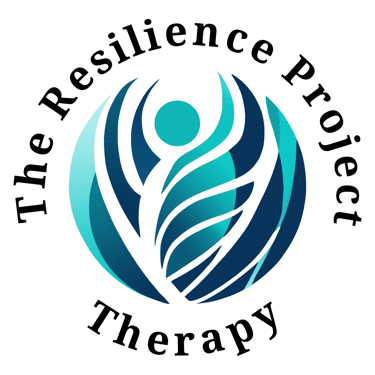Coping with Anxiety Through Faith
How incorporating a faith practice can help manage anxiety through meaning, mindfulness, guidance, support, and trust.
Christian Gray Hering, LCSW
3/18/20243 min read


As a therapist, I work with many clients who struggle with anxiety and are looking for healthy ways to manage their symptoms. While there are certainly valuable therapeutic techniques and tools I provide, one resource that I've seen be incredibly beneficial for some is practicing faith. For those who identify as spiritual or religious, leaning into their beliefs during difficult times can be a powerful source of comfort and calm.
Before we go further, I want to acknowledge that not everyone has a faith background or interest in exploring religion or spirituality. That's perfectly okay - developing a faith practice is simply one potential option among many for coping with anxiety. My role isn't to push any beliefs, but to support my clients in finding constructive outlets that work for them as individuals.
With that said, let's look at some of the ways faith can help ease anxiety for those drawn to it:
A Sense of Purpose and Meaning
One factor that can fuel anxiety is feeling rudderless or lacking a sense of overarching purpose. Religious and spiritual traditions offer frameworks for deriving meaning from life's ups and downs. When you feel part of something bigger than yourself, it can provide anchoring during turbulent periods. Worldviews rooted in faith allow you to contextualize challenges and difficulties as part of a grand journey.
Mindfulness and Present-Moment Living
Anxiety is fundamentally a condition of feeling overwhelmed about what-ifs and worst-case scenarios that may or may not occur. Many faith practices encourage the cultivation of mindfulness – the skill of staying grounded in the present moment rather than getting carried away by anxious thoughts. Prayer, meditation, chanting, and other spiritual rituals can train your mind to focus and find stillness.
Moral and Ethical Guidance
For some, anxiety stems from tough decisions – weighing complex personal and professional choices without a clear moral lodestar to guide them. Religious and spiritual teachings often provide ethical frameworks for navigating difficult situations with integrity. Having faith in a higher source of wisdom can ease anxiety about directionless uncertainty.
Community Support
Loneliness and isolation breed anxiety, while connection and fellowship alleviate it. Most faith traditions bring together communities of fellow believers who can offer encouragement, empathy, and accountability. If you're facing anxiety-inducing trials, being part of a spiritual community allows you to share your burdens with others rather than facing them alone.
Trust in Unfoldment
A key component of many faith traditions is the concept of divine order or a benevolent force guiding the universe. With that perspective, you can surrender obsessive control and trust that circumstances will unfold as they should – without your needing to bear the full weight of anxiety about determining the "right" outcome.
These are just some examples of how religious and spiritual faith can serve as a valuable coping mechanism for anxiety. But keep in mind, a faith practice is meant to be a complement to – not a replacement for – other therapeutic interventions like counseling, medication, lifestyle changes, and so on.
My advice is this: if you're facing anxiety and feel drawn to explore faith as a source of comfort, give it an open-minded try and see if it's a good fit. But don't force anything that doesn't feel genuine to you. Seek out a religious or spiritual tradition that resonates, and allow its teachings to provide grounding. Build a routine of spiritual practice like prayer, sacred text study, or quiet contemplation. And most importantly, connect with a supportive faith community that can walk alongside you on your journey.
Everyone has different needs when it comes to managing anxiety. For some, faith can be a transformative resource for healing, perspective, and inner peace. If that path calls to you, don't be afraid to answer.
Sources Cited:
The Resilience Project Therapy
Mailing
P.O. Box 832182
Richardson, TX 75083
Contacts








